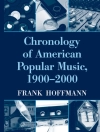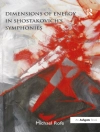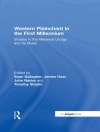This book explores and reveals the intricacies of Jewish heritage in contemporary Germany, the role it plays as a moral heritage in the symbolic representation of Jews and Judaism in the national landscape, and its relevance for the cultural sustainability of local Jewish communities. The practice of synagogue music in the past and present is a central case study in the discussions. This ethnographic study examines how Jewish liturgical music as the cultural heritage of minorities has been constructed, treated, discussed, appropriated, and passed on to different actors in different forms and for different purposes over time. It also examines the resulting moral and ethical questions and power imbalances. The author discusses how both Jewish and non-Jewish stakeholders utilize the music of 19th- and early 20th-century Reform Judaism and the Minhag Ashkenaz for a symbolic reconstruction of German Jewry. Furthermore, they repatriate it in local Jewish communities today. This is usually done for individual, sometimes commercial, rather than religious reasons. The Jewish-musical cultural heritage process is characterized by moral imperatives and complex negotiations about power and representation. It reveals problematic aspects of German-Jewish relations, cross-generational rifts, and denominational differences between the Jewish communities in post-war Germany.
Sarah M. Ross
Moralization of Jewish Heritage in Germany [EPUB ebook]
Sustaining Jewish Life in the Twenty-First Century
Moralization of Jewish Heritage in Germany [EPUB ebook]
Sustaining Jewish Life in the Twenty-First Century
Придбайте цю електронну книгу та отримайте ще 1 БЕЗКОШТОВНО!
Мова Англійська ● Формат EPUB ● ISBN 9781666904406 ● Видавець Lexington Books ● Опубліковано 2024 ● Завантажувані 3 разів ● Валюта EUR ● Посвідчення особи 9969753 ● Захист від копіювання Adobe DRM
Потрібен читач електронних книг, що підтримує DRM












